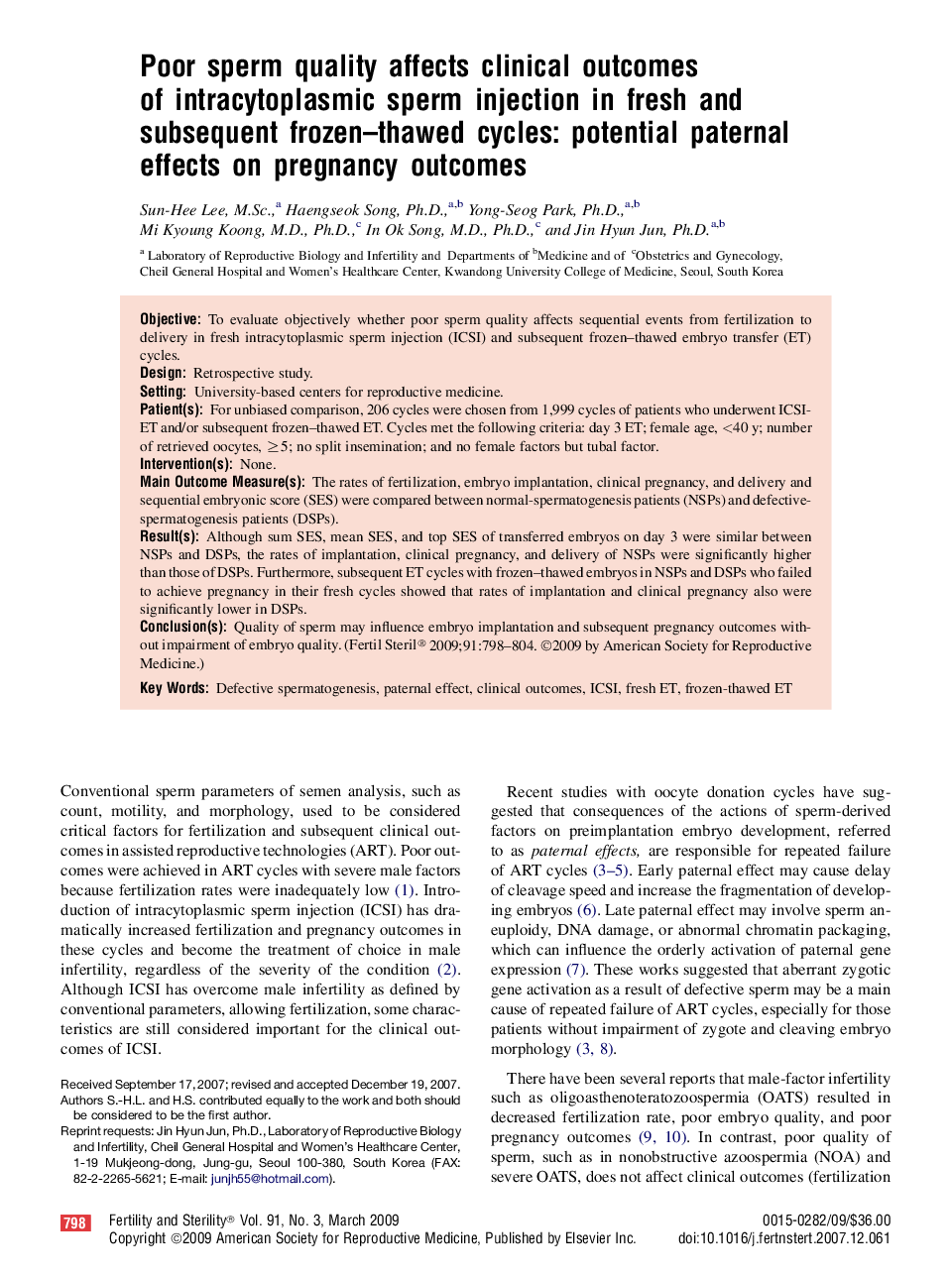| Article ID | Journal | Published Year | Pages | File Type |
|---|---|---|---|---|
| 3936964 | Fertility and Sterility | 2009 | 7 Pages |
ObjectiveTo evaluate objectively whether poor sperm quality affects sequential events from fertilization to delivery in fresh intracytoplasmic sperm injection (ICSI) and subsequent frozen–thawed embryo transfer (ET) cycles.DesignRetrospective study.SettingUniversity-based centers for reproductive medicine.Patient(s)For unbiased comparison, 206 cycles were chosen from 1,999 cycles of patients who underwent ICSI-ET and/or subsequent frozen–thawed ET. Cycles met the following criteria: day 3 ET; female age, <40 y; number of retrieved oocytes, ≥5; no split insemination; and no female factors but tubal factor.Intervention(s)None.Main Outcome Measure(s)The rates of fertilization, embryo implantation, clinical pregnancy, and delivery and sequential embryonic score (SES) were compared between normal-spermatogenesis patients (NSPs) and defective-spermatogenesis patients (DSPs).Result(s)Although sum SES, mean SES, and top SES of transferred embryos on day 3 were similar between NSPs and DSPs, the rates of implantation, clinical pregnancy, and delivery of NSPs were significantly higher than those of DSPs. Furthermore, subsequent ET cycles with frozen–thawed embryos in NSPs and DSPs who failed to achieve pregnancy in their fresh cycles showed that rates of implantation and clinical pregnancy also were significantly lower in DSPs.Conclusion(s)Quality of sperm may influence embryo implantation and subsequent pregnancy outcomes without impairment of embryo quality.
